The Dramatic Advances in Organ Regeneration
All deaths are tragic, regardless of the cause, and should never be minimized. However, there is something particularly horrendous and lamentable about a patient passing away from a severe 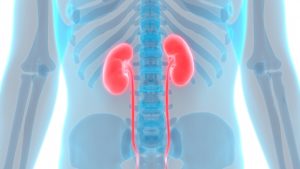 illness that could have been treated IF an organ was available for a transplant.
illness that could have been treated IF an organ was available for a transplant.
But no organs were available.
Regrettably, countless people have died while waiting for a healthy organ. Our current medical system is, with rare exceptions, doing its best with its available resources. But there are never enough healthy organs that can be transplanted as needed...which is usually ASAP!
But that might be changing!
Undoubtedly, the idea of transplants on request has occurred in the minds and hopes of medical professionals, deathly ill patients, and their friends and families. But so far, the solution has been proven to be elusive.
The good news is that researchers and scientists have not become discouraged from this vexing problem, and there are exciting developments in this crucial, life-and-death arena.
For example, did you know that…
• Lung transplants are especially harrowing since so many things can go wrong: size mismatches, problems during the surgery, and rejection of the new lungs. However, damaged lungs can be restored and preserved in a healthy condition for almost 24 hours, enough time to get them on a plane for transplant with a 100% success rate!
• Stem cell-based 3-D printer organs have successfully repaired bladders and skin and are now on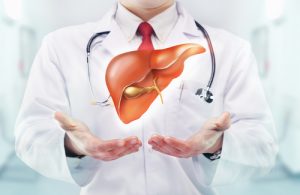 the verge of creating organs like livers, kidneys, and hearts. This will result in a limitless supply of organs on the shelf and ready for transplant.
the verge of creating organs like livers, kidneys, and hearts. This will result in a limitless supply of organs on the shelf and ready for transplant.
• Organs harvested from genetically modified pigs might be “humanized’, or “de-piged” and will be safe for human transplants without rejection.
• Another organ regeneration method is to rebuild lungs from scratch by adding the stem cells of a future recipient to a pig collagen scaffold – again, with no change of rejection since the DNA of the patient and the regenerative tissue will match perfectly.
Upon first glance, you may think these developments sound like science fiction...and you would be correct. However, rest assured that the research on these concepts is continuing, and what seemed impossible a few short years ago is now looming ever larger.
Let’s take a look at the magnitude of the problem of organ transplant availability and what is being done to put an end to it.
The gruesome numbers
According to recent statistics from organdonor.gov, 17 people die daily waiting for an organ transplant. And the need keeps spiraling; a new person is added to the transplant waiting list every ten minutes.
According to the Centers for Disease Control, At least 783,594 adults in the United States are experiencing end-stage kidney disease. That is the demand side of the equation. Now let’s look at the supply side. In 2020, nearly 23,000 kidney transplants were done in America. In March 2020, almost 90,000 people were on the list for a kidney transplant.
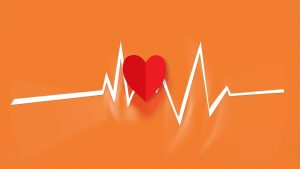 For heart disease, there are usually around 50,000 patients waiting for a heart transplant.
For heart disease, there are usually around 50,000 patients waiting for a heart transplant.
The situation for liver transplants is equally grim. In 2021, there were just over 9,200 liver transplants performed in America. Most liver transplants in the U.S. are among adults aged 50 to 64; this demographic accounted for around 45 percent of all liver transplants in 2022. The current need for liver transplants exceeds availability, with almost 11 thousand people in the United States on the transplant list.
Earlier, we mentioned that research was looking at pig organs as one of the possible solutions to the donor shortage. The idea for the operation was that pig organs are remarkably similar in shape and size to human organs.
The first pig-to-human heart transplant happened early in 2022, and the patient survived a measly two months. This was due to organ rejection on a massive scale. Pig organs “provoke a massive and destructive immune response in humans – far more so than an organ from another person.”
Researchers are using genetic engineering to remove the pig proteins that provoke rejections to stop this fatal response. The technology CRISPR is a precise tool to cut, paste, copy, and move genes around and humanize the pig organ to make it safe and efficient once it is transplanted into a human.
To date, animal trials are proving successful, and human trials are scheduled soon. Scientists have found a way to remove the viruses in the pig genome that cause the rejections in people.
found a way to remove the viruses in the pig genome that cause the rejections in people.
Another approach to conquering the problem of a lack of healthy organs for transplants is to develop a platform to build the organ from scratch using the patient’s stem cells for tissue regeneration.
And let’s not forget 3D-Printed Organs. The first 3D prosthetics emerged in 2010, and we have seen 3D-bioprinted skin for burn victims and bionic ears. The research has advanced to bio-printing organs
and cartilage.
The technologies discussed are still in the research stage and are not ready for human recipients But the scientists are making gigantic strides, and the future of organ transplants is both exciting and bright.
Soon, the days of thousands of people dying annually while waiting for organ transplants will be a thing of the past.
References
https://worldpopulationreview.com/state-rankings/heart-transplant-waiting-list-by-state
https://www.organdonor.gov/learn/organ-donation-statistics
https://www.theatlantic.com/science/archive/2017/08/pig-organs-for-humans/536307/
https://www.mayoclinic.org/tests-procedures/liver-transplant/about/pac-20384842
https://www.cdc.gov/transplantsafety/index.html

- Human Growth Hormone Injections In Cheyenne [Last Updated On: February 7th, 2024] [Originally Added On: October 19th, 2018]
- Human Growth Hormone Injections In Madison [Last Updated On: February 7th, 2024] [Originally Added On: October 19th, 2018]
- Human Growth Hormone Injections In Vancouver [Last Updated On: February 7th, 2024] [Originally Added On: October 19th, 2018]
- Human Growth Hormone Injections In Tacoma [Last Updated On: February 7th, 2024] [Originally Added On: October 19th, 2018]
- Human Growth Hormone Injections In Spokane [Last Updated On: February 7th, 2024] [Originally Added On: October 19th, 2018]
- Human Growth Hormone Injections In Bellevue [Last Updated On: February 7th, 2024] [Originally Added On: October 19th, 2018]
- Human Growth Hormone Injections In Richmond [Last Updated On: February 7th, 2024] [Originally Added On: October 19th, 2018]
- Human Growth Hormone Injections In Portsmouth [Last Updated On: February 7th, 2024] [Originally Added On: October 19th, 2018]
- Human Growth Hormone Injections In Norfolk [Last Updated On: February 7th, 2024] [Originally Added On: October 19th, 2018]
- Human Growth Hormone Injections In Hampton [Last Updated On: February 7th, 2024] [Originally Added On: October 19th, 2018]
- Human Growth Hormone Injections In Chesapeake [Last Updated On: February 7th, 2024] [Originally Added On: October 19th, 2018]
- Human Growth Hormone Injections In Alexandria [Last Updated On: February 7th, 2024] [Originally Added On: October 19th, 2018]
- Human Growth Hormone Injections In Montpelier [Last Updated On: February 7th, 2024] [Originally Added On: October 19th, 2018]
- Human Growth Hormone Injections In Provo [Last Updated On: February 7th, 2024] [Originally Added On: October 19th, 2018]
- Human Growth Hormone Injections In Waco [Last Updated On: February 7th, 2024] [Originally Added On: October 19th, 2018]
- Human Growth Hormone Injections In Richardson [Last Updated On: February 7th, 2024] [Originally Added On: October 19th, 2018]
- Human Growth Hormone Injections In Plano [Last Updated On: February 7th, 2024] [Originally Added On: October 19th, 2018]
- Human Growth Hormone Injections In Pasadena [Last Updated On: February 7th, 2024] [Originally Added On: October 19th, 2018]
- Human Growth Hormone Injections In Midland [Last Updated On: February 7th, 2024] [Originally Added On: October 19th, 2018]
- Human Growth Hormone Injections In Mesquite [Last Updated On: February 7th, 2024] [Originally Added On: October 19th, 2018]
- Human Growth Hormone Injections In McKinney [Last Updated On: February 7th, 2024] [Originally Added On: October 19th, 2018]
- Human Growth Hormone Injections In McAllen [Last Updated On: February 7th, 2024] [Originally Added On: October 19th, 2018]
- Human Growth Hormone Injections In Lubbock [Last Updated On: February 7th, 2024] [Originally Added On: October 19th, 2018]
- Human Growth Hormone Injections In Lewisville [Last Updated On: February 7th, 2024] [Originally Added On: October 20th, 2018]
- Human Growth Hormone Injections In Laredo [Last Updated On: February 7th, 2024] [Originally Added On: October 20th, 2018]
- Human Growth Hormone Injections In Killeen [Last Updated On: February 7th, 2024] [Originally Added On: October 20th, 2018]
- Human Growth Hormone Injections In Irving [Last Updated On: February 7th, 2024] [Originally Added On: October 20th, 2018]
- Human Growth Hormone Injections In Garland [Last Updated On: February 7th, 2024] [Originally Added On: October 20th, 2018]
- Human Growth Hormone Injections In Denton [Last Updated On: February 7th, 2024] [Originally Added On: October 20th, 2018]
- Human Growth Hormone Injections In Carrollton [Last Updated On: February 7th, 2024] [Originally Added On: October 20th, 2018]
- Human Growth Hormone Injections In Brownsville [Last Updated On: February 7th, 2024] [Originally Added On: October 20th, 2018]
- Human Growth Hormone Injections In Beaumont [Last Updated On: February 7th, 2024] [Originally Added On: October 20th, 2018]
- Human Growth Hormone Injections In Austin [Last Updated On: February 7th, 2024] [Originally Added On: October 20th, 2018]
- Human Growth Hormone Injections In Arlington [Last Updated On: February 7th, 2024] [Originally Added On: October 20th, 2018]
- Human Growth Hormone Injections In Amarillo [Last Updated On: February 7th, 2024] [Originally Added On: October 20th, 2018]
- Human Growth Hormone Injections In Abilene [Last Updated On: February 7th, 2024] [Originally Added On: October 20th, 2018]
- Human Growth Hormone Injections In Nashville [Last Updated On: February 7th, 2024] [Originally Added On: October 20th, 2018]
- Human Growth Hormone Injections In Murfreesboro [Last Updated On: February 7th, 2024] [Originally Added On: October 20th, 2018]
- Human Growth Hormone Injections In Memphis [Last Updated On: February 7th, 2024] [Originally Added On: October 20th, 2018]
- Human Growth Hormone Injections In Knoxville [Last Updated On: February 7th, 2024] [Originally Added On: October 20th, 2018]
- Human Growth Hormone Injections In Clarksville [Last Updated On: February 7th, 2024] [Originally Added On: October 20th, 2018]
- Human Growth Hormone Injections In Chattanooga [Last Updated On: February 7th, 2024] [Originally Added On: October 20th, 2018]
- Human Growth Hormone Injections In Erie [Last Updated On: February 7th, 2024] [Originally Added On: October 20th, 2018]
- Human Growth Hormone Injections In Allentown [Last Updated On: February 7th, 2024] [Originally Added On: October 20th, 2018]
- Human Growth Hormone Injections In Salem [Last Updated On: February 7th, 2024] [Originally Added On: October 20th, 2018]
- Human Growth Hormone Injections In Portland [Last Updated On: February 7th, 2024] [Originally Added On: October 20th, 2018]
- Human Growth Hormone Injections In Gresham [Last Updated On: February 7th, 2024] [Originally Added On: October 20th, 2018]
- Human Growth Hormone Injections In Eugene [Last Updated On: February 7th, 2024] [Originally Added On: October 20th, 2018]
- Human Growth Hormone Injections In Tulsa [Last Updated On: February 7th, 2024] [Originally Added On: October 20th, 2018]
- Human Growth Hormone Injections In Norman [Last Updated On: February 7th, 2024] [Originally Added On: October 20th, 2018]
- Human Growth Hormone Injections In Toledo [Last Updated On: February 7th, 2024] [Originally Added On: October 20th, 2018]
- Human Growth Hormone Injections In Dayton [Last Updated On: February 7th, 2024] [Originally Added On: October 20th, 2018]
- Human Growth Hormone Injections In Columbus [Last Updated On: February 7th, 2024] [Originally Added On: October 20th, 2018]
- Human Growth Hormone Injections In Akron [Last Updated On: February 7th, 2024] [Originally Added On: October 20th, 2018]
- Human Growth Hormone Injections In Paterson [Last Updated On: February 7th, 2024] [Originally Added On: October 20th, 2018]
- Human Growth Hormone Injections In Reno [Last Updated On: February 7th, 2024] [Originally Added On: October 20th, 2018]
- Human Growth Hormone Injections In Henderson [Last Updated On: February 7th, 2024] [Originally Added On: October 20th, 2018]
- Human Growth Hormone Injections In Omaha [Last Updated On: February 7th, 2024] [Originally Added On: October 20th, 2018]
- Human Growth Hormone Injections In Lincoln [Last Updated On: February 7th, 2024] [Originally Added On: October 20th, 2018]
- Human Growth Hormone Injections In Billings [Last Updated On: February 7th, 2024] [Originally Added On: October 20th, 2018]
- Human Growth Hormone Injections In Springfield [Last Updated On: February 7th, 2024] [Originally Added On: October 20th, 2018]
- Human Growth Hormone Injections In Independence [Last Updated On: February 7th, 2024] [Originally Added On: October 20th, 2018]
- Human Growth Hormone Injections In Columbia [Last Updated On: February 7th, 2024] [Originally Added On: October 20th, 2018]
- Human Growth Hormone Injections In Jackson [Last Updated On: February 7th, 2024] [Originally Added On: October 20th, 2018]
- Human Growth Hormone Injections In Rochester [Last Updated On: February 7th, 2024] [Originally Added On: October 20th, 2018]
- Human Growth Hormone Injections In Warren [Last Updated On: February 7th, 2024] [Originally Added On: October 20th, 2018]
- Human Growth Hormone Injections In Lansing [Last Updated On: February 7th, 2024] [Originally Added On: October 20th, 2018]
- Human Growth Hormone Injections In Flint [Last Updated On: February 7th, 2024] [Originally Added On: October 20th, 2018]
- Human Growth Hormone Injections In Worcester [Last Updated On: February 7th, 2024] [Originally Added On: October 20th, 2018]
- Human Growth Hormone Injections In Springfield [Last Updated On: February 7th, 2024] [Originally Added On: October 20th, 2018]
- Human Growth Hormone Injections In Lowell [Last Updated On: February 7th, 2024] [Originally Added On: October 20th, 2018]
- Human Growth Hormone Injections In Cambridge [Last Updated On: February 7th, 2024] [Originally Added On: October 20th, 2018]
- Human Growth Hormone Injections In Augusta [Last Updated On: February 7th, 2024] [Originally Added On: October 20th, 2018]
- Human Growth Hormone Injections In Shreveport [Last Updated On: February 7th, 2024] [Originally Added On: October 20th, 2018]
- Human Growth Hormone Injections In Lafayette [Last Updated On: February 7th, 2024] [Originally Added On: October 20th, 2018]
- Human Growth Hormone Injections In Louisville [Last Updated On: February 7th, 2024] [Originally Added On: October 20th, 2018]
- Human Growth Hormone Injections In Lexington [Last Updated On: February 7th, 2024] [Originally Added On: October 20th, 2018]
- Human Growth Hormone Injections In Wichita [Last Updated On: February 7th, 2024] [Originally Added On: October 20th, 2018]
- Human Growth Hormone Injections In Topeka [Last Updated On: February 7th, 2024] [Originally Added On: October 20th, 2018]
- Human Growth Hormone Injections In Olathe [Last Updated On: February 7th, 2024] [Originally Added On: October 20th, 2018]
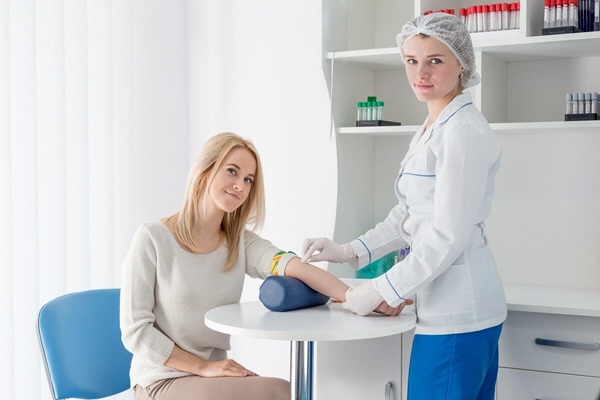
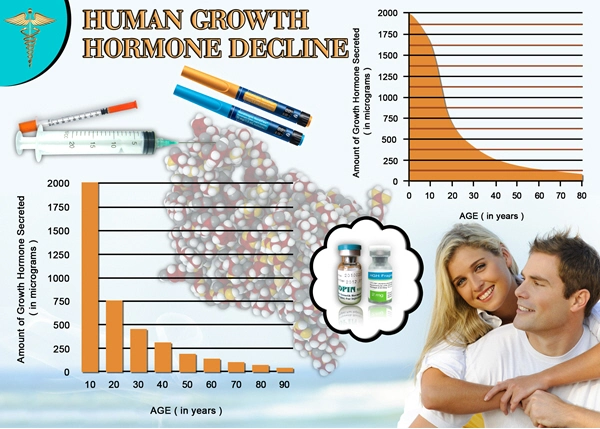
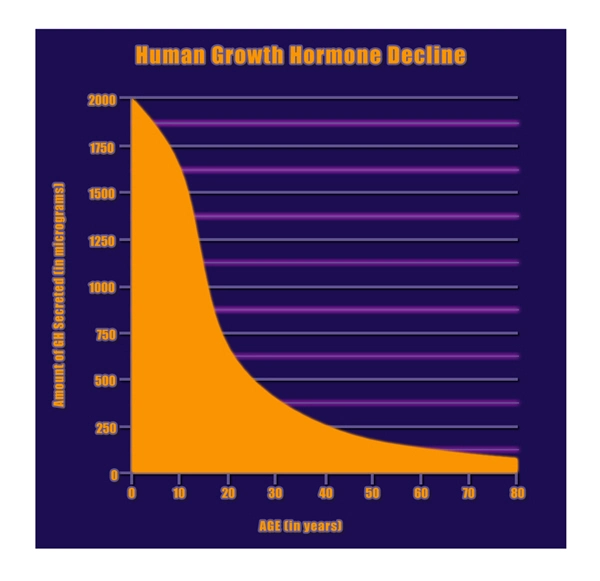
List of USA state clinics - click a flag below for blood testing clinics.
Word Count: 889



















































